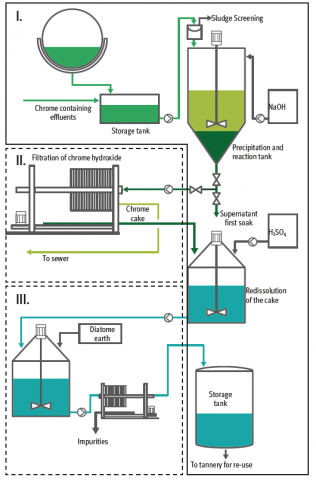Tanning industry is an important segment of UNIDO technical assistance in promoting sustainable development. In late 90-ies a number of studies dealing with various cleaner tanning methods, including the widely used paper The Scope for decreasing pollution load in leather processing, were prepared to support different forms of training activities (shop-floor demonstrations, pilot plants, national and regional workshops etc).
In the meantime a lot of practical experience has been gathered, some new tanning technologies developed and implemented and some new challenges have also emerged. Since proper training is essential precondition for modern, sustainable leather processing, it is felt that a single, comprehensive paper on cleaner leather technologies, rounding up and updating earlier papers, could be of great help in training and capacity building activities.
In addition to traditional cleaner technologies topics such as pollution sources/loads, water management, hair-save liming, low- or ammonia-free deliming, chrome management, low-organic solvents finishing, solid waste management etc., this comprehensive study addresses virtually all issues relevant for performance and successful tanning operations: tannery environmental management systems (EMS/CSR), Restricted Substances Lists (RSL), energy considerations, mechanical operations, Occupational Safety and Health at workplace (OSH), Carbon Footprint (CF) and Life Cycle Analysis (LCA) which are so often the subject of extensive debates in various international fora and media.
The study also includes many tables, charts and (equipment) photos accompanying and illustrating the text.
It is envisaged that the document will serve as a basis for developing globally accessible eLearning courses on sustainable leather manufacture.
There are also other useful information and sources e.g. Tannery of the Future. The Tannery of the Future tool gives tanners an initial indication of the areas in which they need to become more sustainable, e.g. housekeeping, waste management, working conditions and wages. It also provides references to sources of more in-depth information and guidance.
The Leather Working Group (LWG) has launched an online training platform designed to educate leather manufacturers and other members of the leather supply chain on responsible operating practices.


